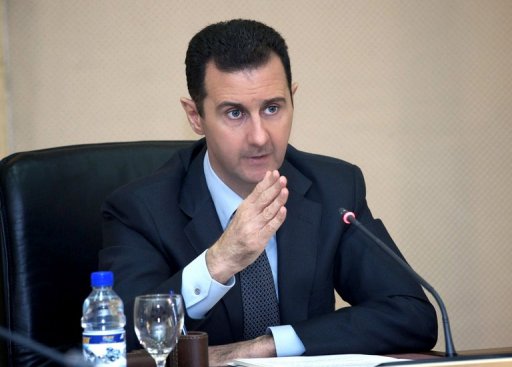An Israeli-Syrian peace deal could be signed by the end of this year, but that requires Bush administration involvement that has not been forthcoming, the head of a high-profile Syrian delegation visiting Washington said last Thursday.
If the political will is there, we could achieve an agreement within three or four months, said delegation lead spokesman Samir Al-Taki, director of a leading Damascus think-tank and an adviser to Syrian Prime Minister Naji Al-Otari, during a luncheon with editors and reporters at The Washington Times.
The security issues involved in an agreement I would say are about 95 percent finalized, he added.
Using Turkey as an intermediary, Israel and Syria acknowledged this spring they conducted indirect talks on a peace accord after a break of nearly a decade.
Syria seeks to reclaim the Golan Heights, lost to Israel in the 1967 Arab-Israeli war, and sees an Israeli settlement as a pre-condition for better ties with the United States. Israel, for its part, hopes an agreement would weaken Syria s alliance with Iran and would pressure Damascus to end its support for militant groups such as Hezbollah and Hamas, which are hostile to Israel.
The Bush administration, which accused Syria of trying to undermine US allies and interests in Lebanon, Iraq and Israel, has been cool to the talks, fearing in part they will erode an American push for an Israeli-Palestinian settlement.
The administration has been harshly critical of the government of Syrian President Bashar Assad because of its inability or refusal to stop foreign fighters from entering Iraq, and its policies toward Lebanon. The Syrian government has been accused of involvement in the 2005 assassination of former Lebanese Prime Minister Rafiq Hariri.
The Syrian team, brought to Washington by the private group Search for Common Ground, earned some unexpected publicity when the State Department on Wednesday abruptly cancelled plans for a previously announced meeting by a top US diplomat with the delegation.
We were not very disappointed, Mr Al-Taki said, for, to tell the truth, we were not expecting with the current situation in Washington a real change.
He said no reason was given for the withdrawn invitation, but it may be that the publicity about our presence here made too many people nervous.
Riad Daoudi, a lead Syrian negotiator at the Turkish negotiations, was originally to accompany the delegation to Washington, but remained in Syria to prepare for the next round of talks. Issues in the talks include border demarcation, water rights, security guarantees and the normalization of diplomatic relations.
Mr. al-Taki said diplomatic and military reverses for Israel and the United States in recent years have left the Middle East in a very dangerous situation.
Israel, he said, failed to impose a political settlement in the Palestinian territories and failed to break Lebanon s Hezbollah militant organization in the summer war of 2006.
The US-led invasion of Iraq in 2003 has not sparked Mr. Bush s hoped-for political revolution in the region, and the Syrian said recent security gains in Iraq remain very, very fragile while the Bush administration tries to keep Syria and other regional powers from having a say in Iraq s future.
Mr. al-Taki said attempts to pressure or isolate Syria, in the end, hurt America s own interests in the Middle East.
We are unhappy to see ourselves demonized whatever we do, he said. At the end of the game, you cannot succeed in Syria if the perception is you are not trying to change our behavior but change our regime.
Still, he argued Syrian officials recognize they need the United States to be active in the region, as a guarantor of any deal with Israel and as the only power capable of filling the security gap in the region s interlocking crises from Iraq and Iran to Lebanon and the Israeli-Palestinian dispute.
Mr. al-Taki said the prospect of a new US president next year was grounds for some optimism.
Whether it is Obama or McCain, the good news is that no one can pursue the policies that President Bush tried first. It s already a stuck policy, he said.
Anyone who comes next will have to have a different approach.
David Sands is Diplomatic Correspondent for the Washington Times. This article is distributed by the Common Ground News Service (CGNews) and can be accessed at www.commongroundnews.org.


